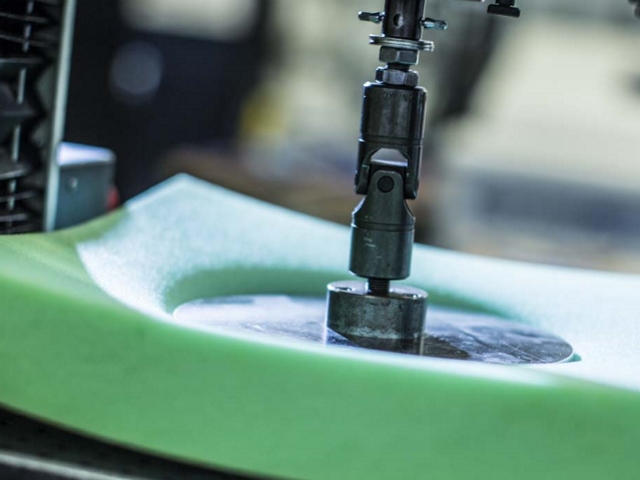Differential Scanning Calorimetry, commonly known as DSC, is a thermo-analytical technique for polymeric and non-metallic materials. Most commonly used for detecting glass transition temperature and other thermal properties, differential scanning calorimetry is one of the most efficient and cost-effective polymer test methods available.
DSC testing has been used for decades as a way to predict the behaviors of polymeric materials under different thermal conditions. Like all calorimeters, this technique tracks the amount of energy required to increase the temperature of a material by a certain amount. By making accurate measurements of heat capacity and temperature, differential scanning calorimetry can detect changes in material properties at exact temperatures, revealing important transition ranges and deterioration points.
To perform DSC testing, a small amount of material is heated at a predetermined rate. The energy required to heat the sample is compared to an inert reference material at the same temperature. If the sample under test requires more energy compared to the reference, it is indicated as an endotherm. The peak of an endotherm indicated melting temperature. When less energy is required to heat the sample as compared to the inert reference, an exothermic peak is observed. This may indicate a chemical reaction such as curing is taking place.
Element performs DSC testing in laboratories across the US and Europe. Our polymer testing experts have years of experience across a variety of industries, and can help you overcome the unique challenges inherent with non-metallic materials. Contact an expert today to let us know how we can make your next project a success.
Our capabilities
Our Materials Testing Services
Abrasion and Wear Testing
Aerospace Fasteners
Aircraft Interiors Flammability Testing
Chemical Analysis
Chemical Processing
Composite Testing
Computed Tomography
Contamination Testing
Corrosion Testing
Die Steel Qualification
Differential Scanning Calorimetry (DSC)
Dynamic Mechanical Analysis
Eddy Current Inspection
Etching
Expert Witness Services
Failure Analysis
Fastener Testing
Fatigue Testing
FEA
Foam Testing
FTIR
Fractography Services
Fracture Toughness
Fuels and Lubricants Testing
Hardness Testing
Impact
Liquid Penetrant Inspection
Magnetic Particle
Material Properties
Mechanical Testing
Metallurgical Testing
NDT Field Services
Nondestructive Testing and Inspection
Nonmetals Failure Analysis
Nonmetal Mechanical Testing
Nonmetal Testing
On-site metallographic examination
Paint and Coating Material Testing Services
Passivation
Polymer Matrix Composite Testing
Polymer Testing Services
Positive Material Identification
Radiographic Inspection
Residual Stress Measurement
Residue Analysis
Sour Service Corrosion Testing
Stress Rupture and Creep Testing
Stress Strain Analysis
Tensile Testing
Thermogravimetric Analysis (TGA)
making certain for nearly 190 years
More from Element

resource
Considerations for Glass Transition Temperature
Element offers a variety of methods for determining glass transition temperature and other important polymeric characteristics
Read More

Services
Non-Metallic Materials Testing
Non metallic materials can be evaluated for strength, flexibility, fatigue, and many of the other physical properties that metals are tested to. Understanding the limits of your material is vital in determining its integrity and useful lifespan.
Read More

services
Polymer Testing
We offer world-class materials expertise in polymers, elastomers, thermoplastics, composites and structural adhesives.
Read more

locations
Local laboratories, global platform
Doing business with one of our laboratories enables our clients' access to our global platform of expertise, capacity and capabilities.
READ MORE




